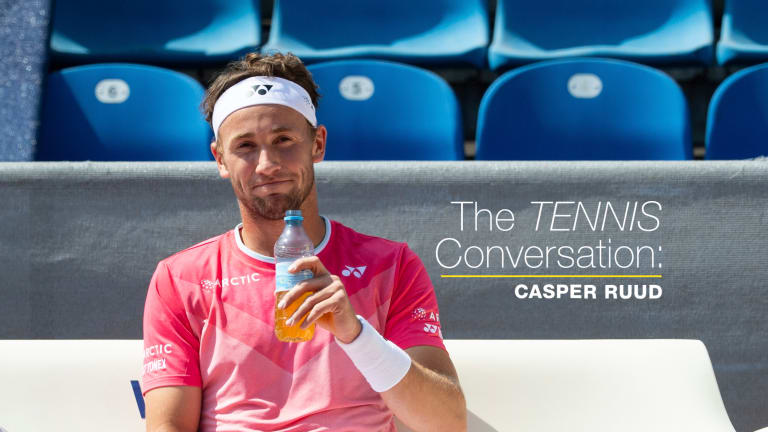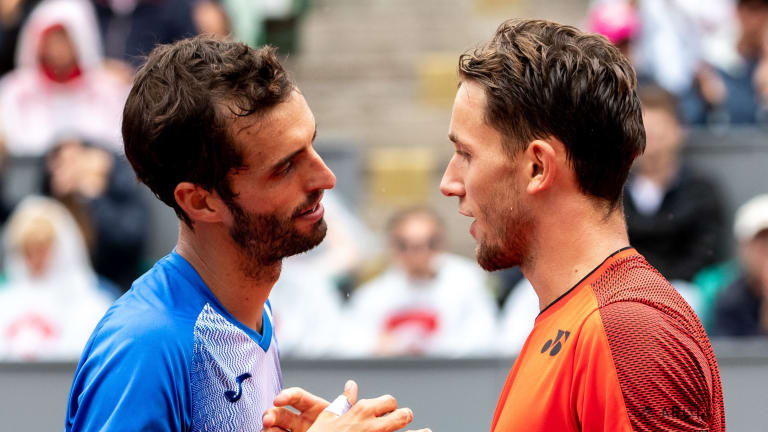Casper Ruud has 29 losses in his young ATP career on both hard and clay courts. The difference is that he has 21 wins on one surface, and nearly triple that on the other.
The 22-year-old's comfort on clay has been evident from his early days. And with his 7-5, 6-2 win over Tennys Sandgren in the second round of the Geneva Open on Wednesday, Ruud improved to 58-29 on the slow surface. On clay, Ruud has emerged in the pros, reaching progressively higher milestones each year. In 2017, as a 208th-ranked wild card, he reached the ATP 500 semifinals of Rio de Janeiro; in 2018, he won his main-draw debut at Roland Garros; in 2019, he contested his first ATP final in Houston, and advanced to the third round of the French Open.
Last year, before the pandemic forced tennis to stop for five months, Ruud went a step further in lifting his first ATP trophy at Santiago. And in September, at the rescheduled Internazionali BNL D’Italia in Rome, he advanced to his first ATP Masters 1000 semifinal after ousting No. 8 Matteo Berrettini—for another first, a Top 10 victory.
As Ruud shares in our latest TENNIS Conversation, he thought to himself after that week at the Foro Italico, "will this be a one-hit wonder, or will this happen again?" If what the Norwegian has done ahead of this year's French Open is any indication—tacking on Masters 1000 semifinals in Monte Carlo and Madrid thanks to five Top 20 wins (including No. 5 Stefanos Tsitsipas) and bettering his career-high ranking to No. 16—there are plenty more chart-toppers to come for Ruud in Paris, and beyond.
No one knows when, or if, we’ll return to “normal” again. At least from the outside, it looks like you’ve really got a handle on how to adapt since the restart. What's been the key for you in rolling with the punches? Is that just naturally in your DNA?
RUUD: Well, we're all here to go to work. This is our job to play tennis, and be here to focus. And when you're an athlete, we say it’s normal that your job is 24/7. Because you always have to take care of what you eat, what you do. And you're always preparing for the next match, I would say, and trying to get your body as good as possible and your shape as good as possible.
We're usually in big cities. To walk around a little bit and have dinner at a restaurant is probably the thing that has changed the most. And then also not having the fans there at most of the tournaments is also a big change for us. But ultimately we're here to do a job. And the day goes by pretty quick when you're playing a match and you're playing a tournament. Because you do all this stuff you have to do to prepare. Our work usually means that we have to rest a lot in between the matches. So to me, I haven't felt that big of a sacrifice. The toughest part, I think, is that you're always a bit scared to get infected.

